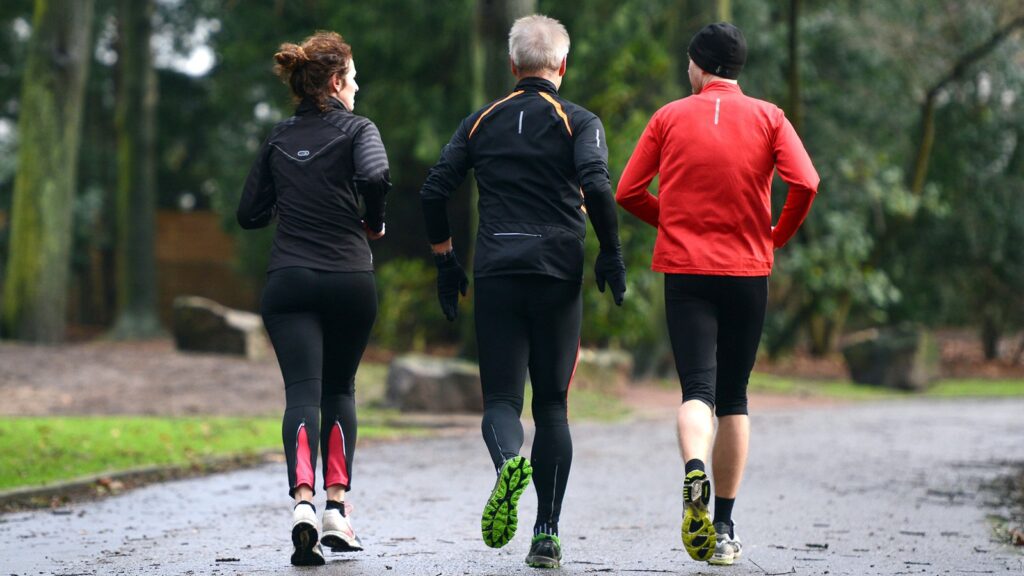Slow running is less traumatic
Statistics that you can’t argue with: slow beginners are injured much less often than runners with experience. This may seem strange. But in fact, everything is reasonable.
First, when running slowly, it is easier to follow the technique. Secondly, experience often plays against the athlete. A person is so confident and focused on the pace that he ignores caution and remains deaf to the body’s alarm signals.
Slow running prolongs your life
A well-known fact: running rejuvenates blood vessels and trains the heart. This reduces the risk of developing cardiovascular diseases by 35%.
And for people who run slowly or at a moderate pace, this percentage is even higher than for speed runners. This was reported by the authors of a study published in 2015 in the journal of the American College of Cardiology.
The explanation is simple: during a slow run, the heart is training, and not working on wear and tear.
Running slowly will help you run faster
At a fast pace, a person quickly reaches the aerobic threshold: the level of lactate in the blood begins to rise, and the process of energy formation occurs in conditions of lack of oxygen.
Slow running helps maximize your aerobic abilities. That is, it teaches the body to train at a higher intensity, without accumulating lactate.
Coach and member of the Road Runners Club of America William Etty says: “I have never been a speed athlete. But thanks to slow running, I was able to improve my time at the marathon from 5 hours and 51 minutes in 2014 to 3 hours and 57 minutes in 2016. But I trained exclusively at a conversational pace, without looking at the time at all.”
Slow running is a low-pulse workout that is very useful
Low-pulse workouts have a lot of advantages. For example, they train the body to exercise, strengthen the muscles and heal the body. What else can you dream about when wearing sneakers?
Slow running is running for fun. And no stress at all
Running is a release for the nervous system and a great cure for stress. But working at the limit and training “through can’t” is also stressful. If it is not reasonably dosed, dissatisfaction with performance, chronic fatigue and overtraining are inevitable.
Let the slow run not be so ambitious. But working for fun, not for results – this is a guaranteed portion of endorphins, no frustration and a higher level of energy after the lesson.
And of course, slow running is not at all “less masculine”, as many representatives of the stronger sex think. Not manly is when you don’t exercise at all.
Read more: ABOUT MEDITATION + SIMPLE METHODS

